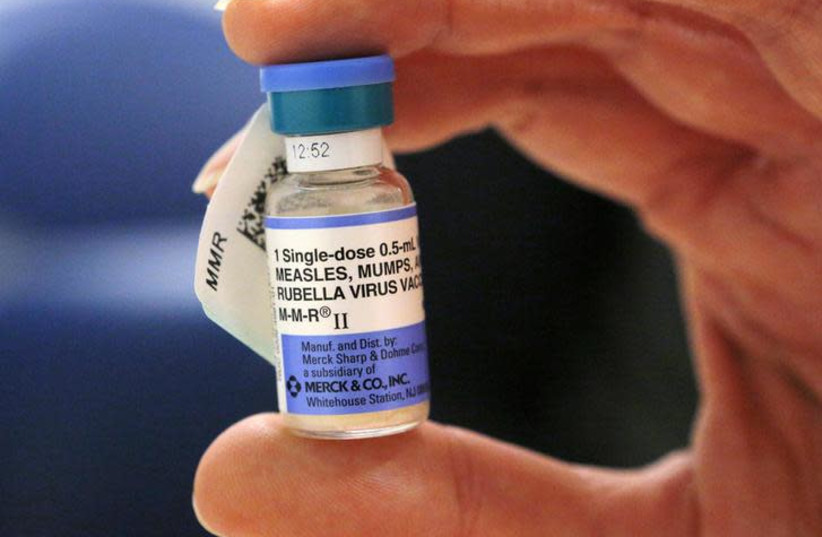A coin-sized device may help detect the measles virus in human saliva, potentially leading to early diagnosis and control of spread of the highly contagious disease. New research on the point-of-care device was published Thursday in the peer-reviewed Advanced Functional Materials.
Researchers at the Italian National Research Council call their invention a "lab-on-a-chip" device, adding that it is about the size of a US quarter. It works by loading the measles virus into healthy human saliva and detecting the virus in less than 30 minutes, according to the researchers.
“Our technology for the first time demonstrated the synergic operation of different surface-acoustic-wave-based micro devices on the same chip, in the context of lab-on-a-chip biosensing. In this way we have been able to drastically improve the detection limit of our sensors, potentially enabling early point-of-care diagnostic applications,” said senior author Marco Cecchini.
“Our technology for the first time demonstrated the synergic operation of different surface-acoustic-wave-based micro devices on the same chip, in the context of lab-on-a-chip biosensing. In this way we have been able to drastically improve the detection limit of our sensors, potentially enabling early point-of-care diagnostic applications.”
Senior study author Marco Cecchini
Wasn't measles eradicated?

Measles is one of the most infectious airborne viruses worldwide, similar to the Omicron variant of COVID, and significantly more contagious than the coronavirus Alpha variant.
An effective vaccine nearly eliminated measles in the United States, which declared it eliminated in 2000. However, almost 1,300 cases were reported in 31 states in the country in 2019 — the greatest number since 1992, according to the Centers for Disease Control and Prevention.
Israel saw a major measles outbreak begin in March 2018. In both countries, Orthodox Jews have been at the center of measles outbreaks due to skepticism in the ultra-religious communities that immunizations are safe.
It is also prevalent in developing countries. Roughly nine out of every 10 people who are not vaccinated will become infected after exposure to the measles virus, according to the CDC. While death rates have fallen, measles can be fatal for children.
